There’s a photograph on the jacket of Ocean Vuong’s debut poetry collection of a small boy sitting on a wooden bench. Encircled by the arms of two women in summery cottons, he gazes steadily at the camera.
The elegance is deceptive: it was taken when the family were living in poverty in a refugee camp in the Philippines, en route for the US, after being expelled from Vietnam. Vuong, the only child in the three-generation exodus, was two years old. A fellow refugee was bartering photographs for food. “That picture cost my family three tins of rice, according to my mother,” he says. “Each of us gave up our ration just to be seen.”
His debut collection, Night Sky With Exit Wounds, is the work of a man with history on his back, even if he has had to imagine some of it into being again. He brings a mythmaker’s insistence on being seen and heard to subjects ranging from the death of Telemachus’s father, from Homeric myth, to the fall of Saigon and common-or-garden masturbation. Already festooned with awards when it arrived in the UK, the book went on to gobble up the Forward prize for best first collection.
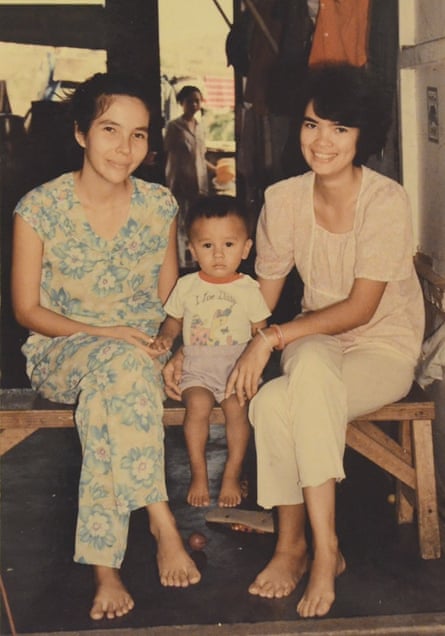
Observer reviewer Kate Kellaway described it as “a conduit for a life in which violence and delicacy collide”, while New York Times critic Michiko Kakutani was impressed by “a tensile precision reminiscent of Emily Dickinson’s work, combined with a Gerard Manley Hopkins-like appreciation for the sound and rhythms of words”.
The poet mopping up all this attention is a small, androgynous figure who radiated a quiet charisma when he took to the vast stage of the Royal Festival Hall, in London, for the Forward prize readings. “Well,” he confesses later, “I don’t have any jokes and my timing is terrible, so I thought the only way to get through it was to hide in the poems. I just climbed into the book and lived there for a while.”
In his telling, Vuong’s life story begins two generations before he was born, when his American grandfather, a Michigan farm boy who “wanted to be Miles Davis”, joined the US navy with his trumpet in his backpack and was posted to Vietnam, where he fell in love with “an illiterate girl from the rice paddies”. This translates, in a piece called Notebook Fragments, as: “An American soldier fucked a Vietnamese farmgirl. Thus my mother exists. Thus I exist. Thus no bombs = no family = no me. / Yikes.”
In fact, he says, his grandparents were married with three daughters when his grandfather decided to visit his family in the US, and was wrong-footed by the fall of Saigon. “My life and my mother’s life wouldn’t have happened without the war. But despite all this, two people loved each other, and the big lesson for me as an artist is that life is always more complicated than the headlines allow; poetry comes in when the news is not enough.”
Before the fall, Saigon had been known as the Paris of south-east Asia – “Nobody thought the apocalypse would happen.” One poem of exile evokes pigeons pecking at bits of bread from a bombed bakery: “Broken baguettes. Crushed croissants. Gutted cars.” Another plays with the surreal fact, relayed to him by his grandmother when he was small but only understood as an adult, that the start of the US evacuation was signalled by Irving Berlin’s White Christmas playing on Armed Forces Radio, in a country that didn’t know the meaning of snow.
It became dangerous to be seen as a collaborator, so his grandmother put the three girls into different orphanages. Why the separation? “Because it was a humanitarian crisis and there was more chance of them surviving like that,” he explains. His grandmother was also worried they might be stolen and taken out of Vietnam. As the daughters of a US serviceman they would have been eligible for Operation Babylift, a project to evacuate children and put them up for adoption. If the girls had been together, they might also have provided a family ticket for dissidents hoping to travel to the US, he says.
By the time the family were reunited, his mother was an adult. She had given birth to Ocean when she was 18, and was washing men’s hair in a Saigon salon when a policeman realised that she was of mixed race and therefore working illegally under Vietnamese law. The whole family was evacuated to the Philippines while the Salvation Army processed their claim for admission to the US.
After eight months in limbo they were moved on to Hartford, Connecticut, where Vuong’s father quickly disappeared, leaving him to be raised by his mother, grandmother and aunt. One of the pleasures of his poems is the interplay of myth and reality. How, for instance, can his collection be so full of fathers when Vuong grew up in a household of women? “Western mythology is so charged with the father,” he says. “Personally, I’m always asking who’s my father. Like Homer, I felt I’d better make it up. The Japanese have a word for it: yugen, when you have so little you have to imagine it.”
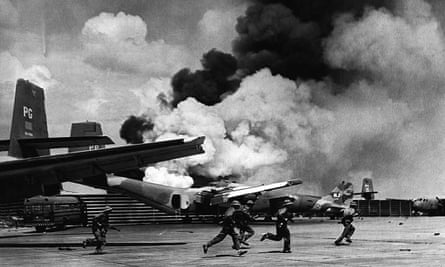
There is a bigger point in this: “I was thinking about Homer particularly, who wrote those two epic poems out of a historical event that happened nearly 400 years in the past. I admired that audacity to invent. In inventing he preserved history.”
Although Vuong lost his father, he regained his grandfather, who was by then married to a university academic and living in Florida. So from one household of women who couldn’t read but were constantly telling stories, he would fly across the country to another in which a scholarly quiet reigned. “There was this tensile silence as they turned the pages. It was so potent that I felt whatever is in there I’ve got to find out.”
But he was “a terrible student”, who was propelled by his family’s ambition to stick it out at a rough school, where “being a slight, queer, yellow boy, it was very easy to be picked on”. Reading was particularly hard, and he suspects that dyslexia runs in his family, though he says now: “I think perhaps the disability helped me a bit, because I write very slowly and see words as objects. I’m always trying to look for words inside words. It’s so beautiful to me that the word laughter is inside slaughter.”
Vuong was expecting to follow his mother into work at a nail salon, but was persuaded to enrol at the local community college, where his life changed course on the very first day. “This woman said, ‘We’re going to read Foucault, and a lot will go over your head but some of it will stick and you’ll get it.’ That first day we were offered the gift of potential, and not only offered it – it was demanded of us.”
By the time he left he was reading Baudelaire and Langston Hughes, and knew that he wanted to be a poet even if it was destined to be a dream deferred as he worked out a way to support his mother. He signed up for a degree in international marketing at New York’s Pace University, but walked out after eight weeks “because I was so tired of learning how to lie”.
For months, he recalls floundering, sleeping on friends’ couches, unable to tell his mother that he had dropped out. But gradually he began to discover “the lush literary life”, going to open mic sessions and mixing with writers. Then someone told him that to be a poet he needed an English degree (“I said, ‘But I already speak English’”). More by luck than judgment he won a place at Brooklyn College, where he walked into the English faculty to find himself face to face with portraits of two of his heroes: Allen Ginsberg and John Ashbery. “I found my people. I was seen for the first time.”
After graduating, he led “the life of any young poet – you just cast your little poems around and hope for the best”. He was living in a cheap New York apartment, down a long, narrow hallway, which he papered with poems, moving them around into different sequences. “Each poem was a little room. I could see how they grew and started to gain resonance and meaning.”
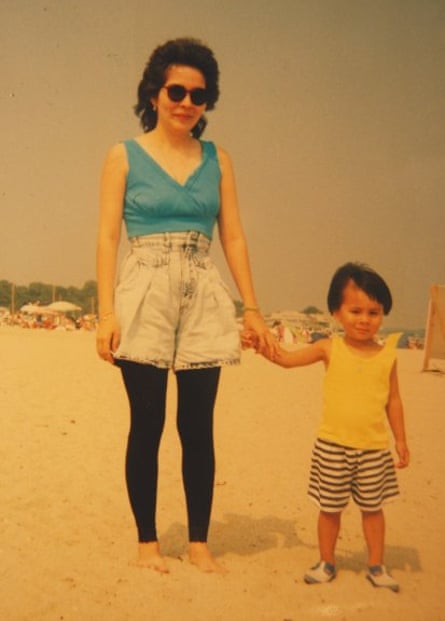
He put together Night Sky With Exit Wounds for an open competition that promised to send a personal rejection to every entrant. “I said, ‘Oh my, a personal rejection. Maybe that’ll give me some tips and push me back out there with a better idea.’” Instead, he received an offer to publish it from the Seattle-based indie Copper Canyon Press.
Today he is no longer “any young poet” but an award-winning 28-year-old writer with a novel in the works, and an assistant professorship on the MFA programme at the University of Massachusetts Amherst, down the road from where Emily Dickinson once lived. “Because of the precarious nature of my own history I don’t like to be confined to any genre, given any label. Ultimately, we’re all just writing sentences and telling stories,” he says. “In New York everyone’s in your way until you talk to them – the writer only needs to pay attention. What I do know is that when you’re telling stories it’s very hard to hate each other.”
He shares a little house nearby with his partner of 10 years, Peter, an ex-lawyer and the one good thing to have come out of his eight weeks at business school. Best of all, he says, he has just bought his mother a house. “I went about it in a roundabout way and it did take longer, but I did it. She always wanted a garden – and she got it through poetry.”
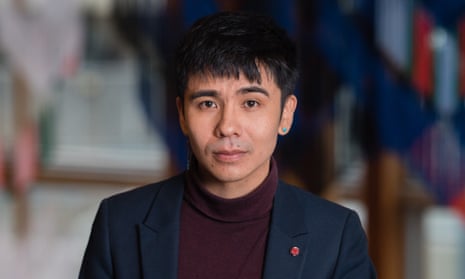
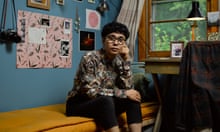


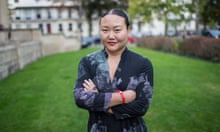
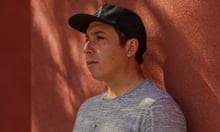

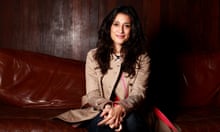
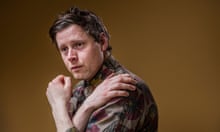


Comments (…)
Sign in or create your Guardian account to join the discussion